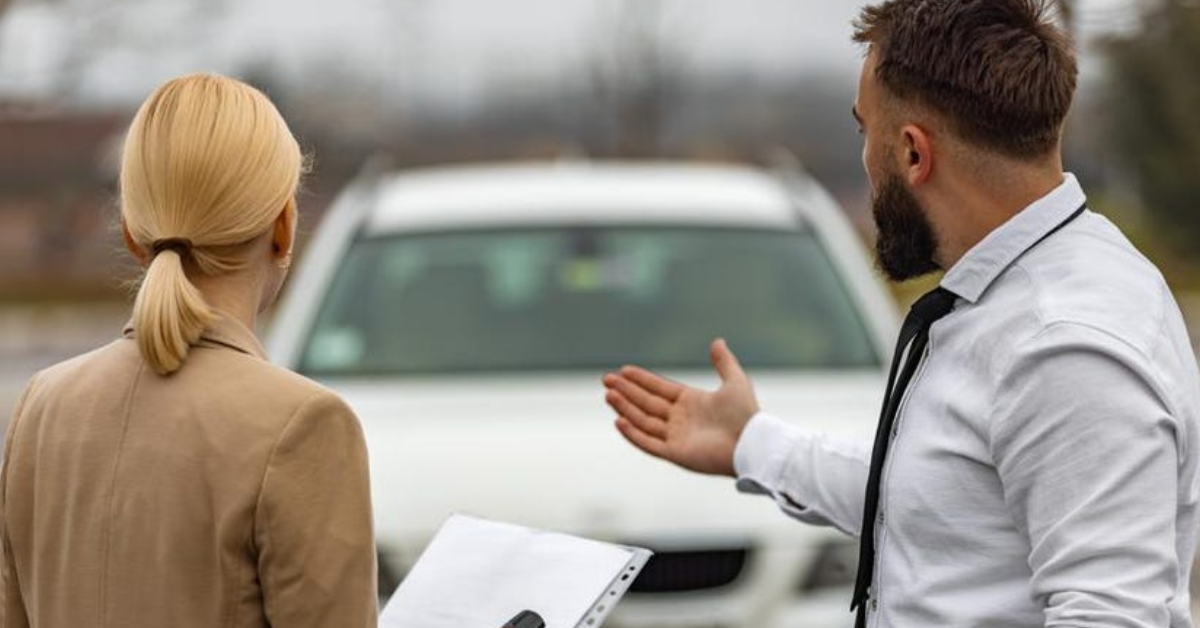
A salvage title car is one that a car insurance company has determined has such extensive damage that it would cost more to repair than the car is worth. If you own a salvage title car, you often can’t insure it until it’s been rebuilt and inspected.
A car could be designated a salvage vehicle if it has been wrecked, destroyed or stolen or has sustained other damage that results in it being considered too costly to repair.
Situations that may lead to a car being totaled and classified as “salvage” include:
- Destruction caused by a crash
- Severe damage caused by a flood or hailstorm
- Theft and recovery of a car
What Is a Salvage Title?
Each state has different guidelines regarding when a car can officially be totaled. But not all cars declared a total loss will become salvage. Car insurance companies typically make a salvage decision based on state laws and their own internal guidelines.
A salvage title is typically applied to a car if it’s been deemed a total loss by the insurance company due to damage or theft.
In Nevada, for example, a salvage title is issued to:
- The insurer when the company declares a vehicle to be a total loss. In some cases, you can buy your salvage title car back from the insurance company But this might result in the insurer deducting the car’s salvage value from your claim settlement amount.
- The lienholder, or the lender that financed the car’s purchase, if the car isn’t covered by comprehensive and collision coverage.
- The car’s registered owner if there is no insurance company or lienholder involved and you want to keep the car. Some vehicle owners wind up donating the salvage title car to a charity.
Can You Buy Insurance for a Salvage Title Car?
Many car insurance companies refuse to insure salvage title cars. Others might insure salvage title cars but offer only basic liability car insurance and not other types of coverage, such as comprehensive and collision insurance.
Even if you’re able to obtain coverage for the salvage title car, you might find it’s pricey. For example, some insurers might tack on an additional surcharge for salvage title cars. In addition, while the salvage title car may be worth less because of its history, the insurer might not take its depreciated value into account. That means you’ll be paying similar rates to a car that has a clean title and a higher value.
What Is a Rebuilt Title?
Once a salvage title car has been rebuilt, you might be able to obtain car insurance from insurers that otherwise were reluctant to sell coverage for the car. In this scenario, a car would need what’s known as a rebuilt title.
Requirements for securing a rebuilt title vary from state to state.
In Michigan, for example, a salvage title car that has been rebuilt is eligible to be titled and registered if it passes inspection by a specially-trained law enforcement officer. After a successful inspection, the state issues a “rebuilt salvage” title that alerts future owners to the car’s status as a formerly totaled vehicle.
If a rebuilt salvage car is properly titled, you can most likely buy liability coverage, uninsured motorist coverage and personal injury protection (PIP) coverage. But you might not be able to get comprehensive and collision coverage.
Whatever coverage is available, brace yourself for a potentially hefty price.
Tips To Avoid Trouble With A Salvage Car
Experts typically advise against buying a salvage car, in large part because you probably don’t know precisely what you’re purchasing. For this same reason, buying a rebuilt salvage car also might be a gamble. Ideally, you should look for a car with a “clean” title, indicating the car has never been totaled.
Following hurricanes, floods and other major disasters, fraudsters often try to sell heavily damaged salvage cars. These may be patched up but still unsafe to drive. Through a scheme known as “title washing,” a seller might alter a title to conceal a car’s salvage status. You might not learn about the car’s salvage history until it’s too late.
To steer clear of a salvage car with a questionable history, follow these tips.
- Shop at a reputable car dealer.
- Obtain a vehicle history report. One source of these reports is the National Insurance Crime Bureau’s free VINCheck service.
- Have a used car inspected by a trusted mechanic before buying it.
- Ask to see the car’s maintenance records.
- Ask about whether the car has been damaged in a flood, accident or other mishap.
- Do a smell test. If you detect heavy odors from cleaning products, the seller might be trying to mask a problem, such as mold caused by a flood.
- Check the car for evidence of heavy damage. For instance, if you see water stains, mildew, sand or silt, it might be a sign that the car was flooded.
- Walk away if you suspect that someone is attempting to sell you a salvage car without telling you about the vehicle’s past as a total loss.
To read the full article, click here.